This article contains significant spoilers for Black Panther and Black Panther: Wakanda Forever in its discussion of the legacy of colonialism.
Black Panther and Wakanda Forever are movies fascinated by the legacy of colonialism. Central to both movies is the idea of the fictional kingdom of Wakanda as a nation untouched by colonialism and imperialism. However, while Black Panther was popular in Africa, it is a movie constructed from an African American perspective.
“In the diaspora, the Africa we tend to hear about is this fantasy place,” writer and director Ryan Coogler told Rolling Stone upon the release of the original movie. “Because it’s hard to tell a child about slavery – it’s so dire and so awful that you kind of have to balance it with something. So we get this fairy-tale version of Africa. ‘We were kings and queens, and we walked around and ate perfect food, and everyone was free.’ It becomes kind of like Wakanda.”
Indeed, the original Black Panther is told from the perspective of N’Jadaka (Michael B. Jordan), a young Wakandan boy living in exile in the United States. The film’s opening narration is the story of Wakanda as narrated to N’Jadaka by his father N’Jobu (Sterling K. Brown). N’Jobu had been sent to the United States by his brother, King T’Chaka (Atandwa Kani). However, when N’Jobu is radicalized by the racial injustice in America and tries to kill his brother, N’Jadaka is abandoned by his Wakandan family to the United States.
Given the name Erik Stevens, and later the nickname “Killmonger,” N’Jadaka is swallowed by the system. He joins the military, specializing in black ops. As an adult, he sets his sights on Wakanda, the country that abandoned him. Following T’Chaka’s death, Killmonger stages a coup. He deposes the rightful king, T’Chaka’s son T’Challa (Chadwick Boseman). Black Panther is about the legacy of colonialism. Killmonger is ultimately using skills honed by the CIA “to destabilize foreign countries.”
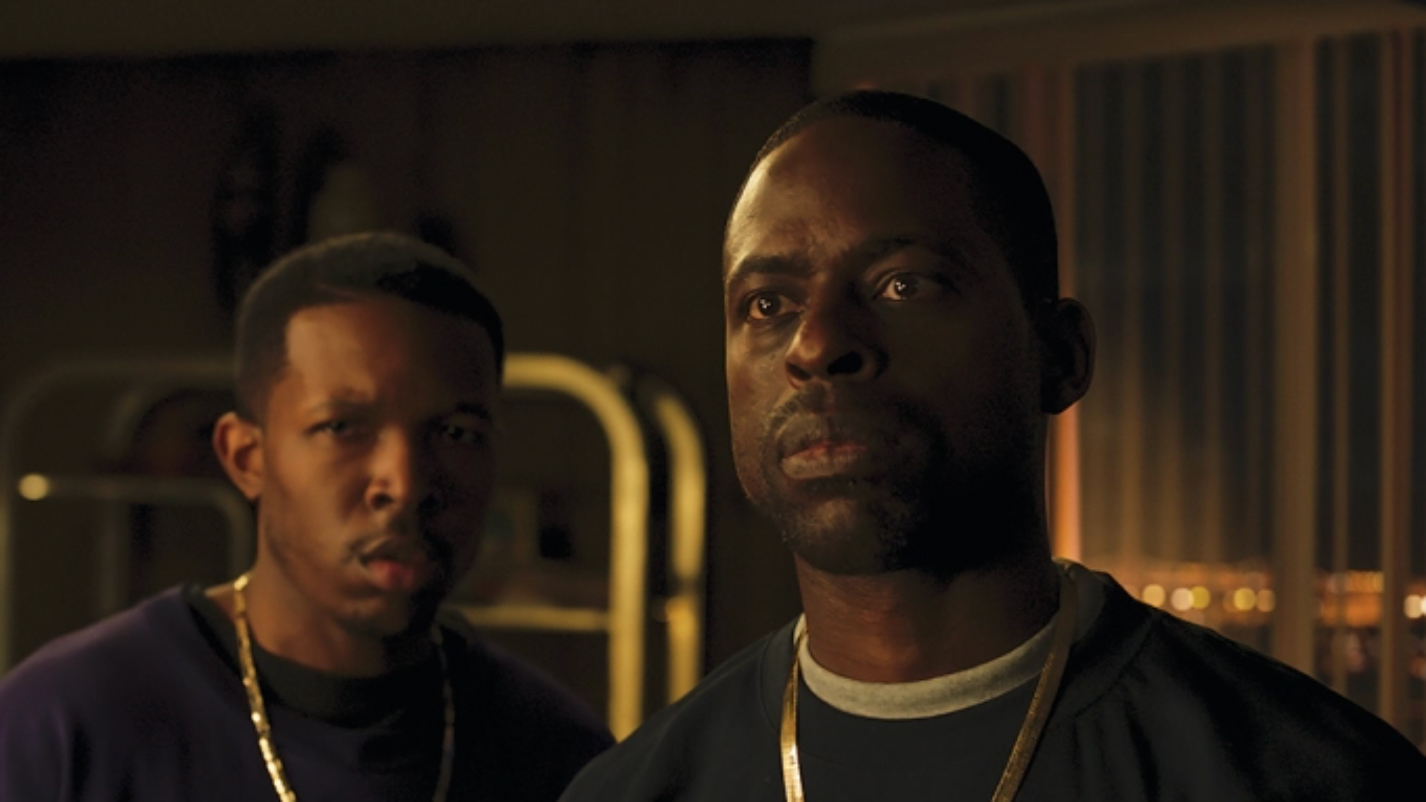
“T’Challa represents … an African that hasn’t been affected by colonization,” Coogler told The Washington Post. “So what we wanted to do was contrast that with a reflection of the diaspora. But the diaspora that’s the most affected by it. And what you get with that is you get African Americans. You get the African that’s not only a product of colonization, but also a product of the worst form of colonization, which is slavery. It was about that clash.”
In some ways, Black Panther was an interesting companion piece to the totally radical postcolonial politics of the previous film from Marvel Studios, Thor: Ragnarok. Both were aggressively and overtly political movies, from a company that was usually quite cautious about such things. Black Panther certainly inspired a wealth of debate about the legacy of colonialism and the viability of revolution. It was also a genuine cultural phenomenon and picked up a Best Picture nomination at the Oscars.
Of course, there was only so far that Black Panther could go. The only active member of the CIA that appears in the screen is Everett Ross (Martin Freeman), one of the two “Tolkien white boys” in the primary cast. Although he is jokingly identified as a “colonizer,” Ross gets to be a hero. During the big action climax, Ross is secreted away from most of the action and given the job of remote-piloting drones over Wakandan air space to prevent Killmonger from exporting the country’s weapons.
This gets at a central paradox in Black Panther. This is a movie about the horrors of violence experienced by a young man taken from Africa to America, who is swallowed by the system and turned into a weapon. Killmonger is a creation of the military-industrial complex, and Ross points out that the CIA taught him the tricks that he uses to topple T’Challa. However, despite the movie’s criticisms of colonialism and the CIA’s history in Africa, the movie’s one CIA agent is a good guy.
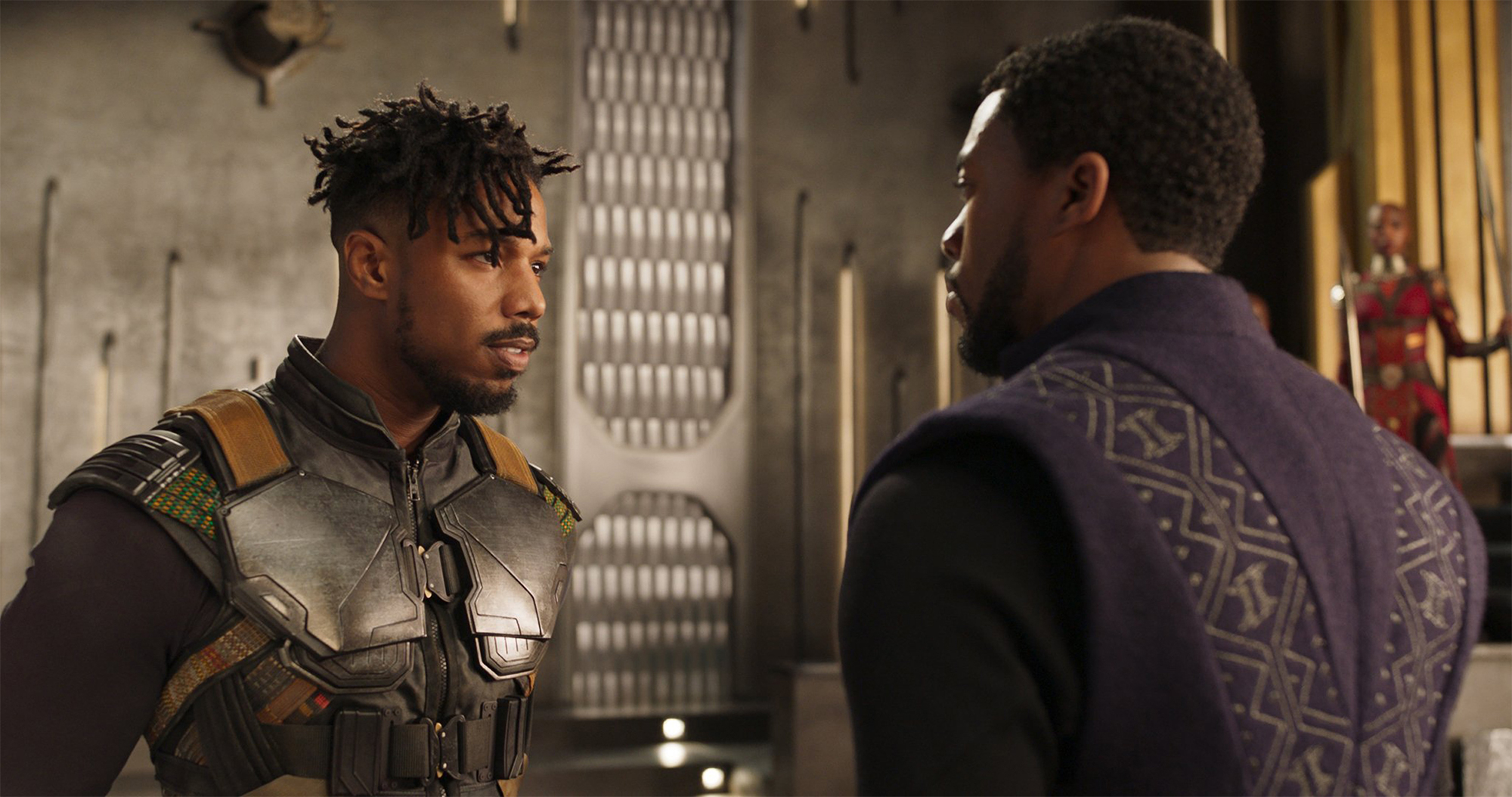
This is bizarre. After all, there is a long history of the American military serving as villains in action movies. In X2, a movie made at the height of the War on Terror, Colonel William Stryker (Brian Cox) operates with the consent of the American president (Cotter Smith). Similarly, Quantum of Solace features the CIA as supporting villains, carving up South America. The Bourne franchise is fascinated by abuses of power within the intelligence community. So why is Black Panther so tame?
These decisions may have been informed by Marvel Studios’ ties to the American military. During production of The Avengers, the Pentagon complained it wasn’t clear where the superheroes fell in the chain of command. Released the year after Black Panther, Captain Marvel was shot with the assistance of the Air Force and led to a recruitment boom. The Department of Defense received a “special thanks” in the credits for WandaVision. Maybe this is all just coincidence.
Still, it is interesting that Wakanda Forever adopts a similar approach to its criticisms of colonialism. Once again, there is an emphasis on Wakanda as a nation that has never been conquered or invaded. Following the opening credits, Queen Ramonda’s (Angela Bassett) address to the United Nations is cross-cut with an attempted mercenary raid on a Wakandan facility, looking to steal the rare resource vibranium. However, the guilty party isn’t the United States; it’s France.
The bulk of Wakanda Forever is built around a conflict between Wakanda and the underwater kingdom of Talokan. Talokan is set up as something of a mirror to Wakanda. Like Wakanda, Talokan has spent most of its existence hidden from the world. Like Wakanda, Talokan is built upon a stockpile of vibranium. While the royal family of Wakanda use the vibranium-affect heart-shaped herb to give them superpowers, the inhabitants of Talokan derive their powers from a similar plant.
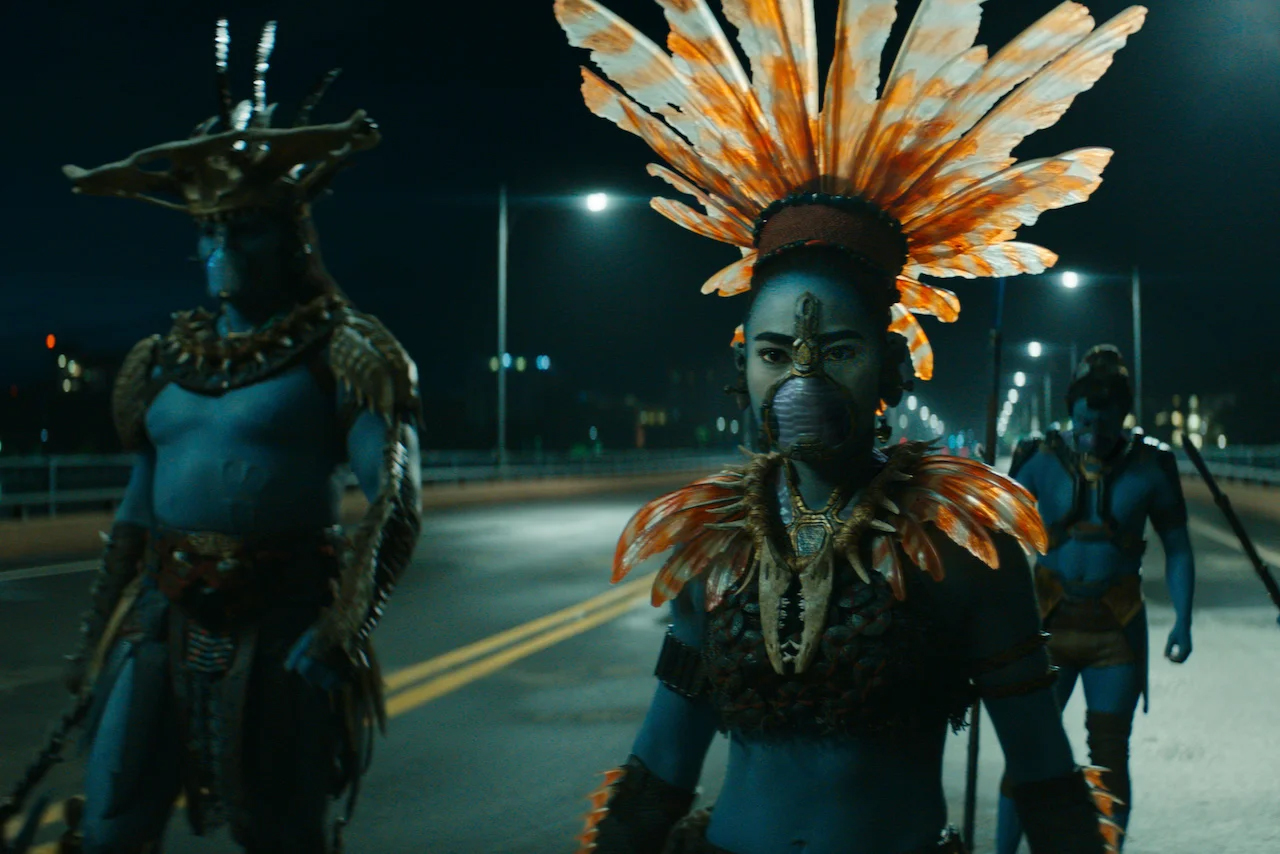
However, the big difference between Wakanda and Talokan is that Talokan has experienced colonialism. The inhabitants of Talokan were an indigenous tribe from Central America, infected by smallpox from the European settlers and chased to the edge of the ocean. Transformed through the consumption of the vibranium-altered plant, the survivors adapt to breathe underwater. However, when they return to the surface, they find their people enslaved by the conquistadors.
This trauma is formative. Under the leadership of Prince Namor (Tenoch Huerta), Talokan has become proactive and aggressive. When the surface world comes looking for vibranium deposits in the ocean, the aquatic kingdom massacres the entire expeditionary team. Namor himself visits Ramonda to propose an alliance, where both Wakanda and Talokan will launch a preemptive war against the nations that would seek to exploit or undermine them.
As in Black Panther, none of the political violence in Wakanda Forever is targeted directly at colonial powers. There is a subplot involving Everett Ross and the CIA. A senior American official (Richard Schiff) even suggests the possibility of “destabilizing” Wakanda in a meeting with CIA Director Valentina Allegra de Fontaine (Julia Louis-Dreyfus). However, this plot doesn’t go anywhere and doesn’t meaningful pay off, aside from giving Ross something to do in an already overstuffed film.
Instead, the violence in Wakanda Forever is largely committed by the victims of colonialism upon Wakanda. When Wakanda refuses to comply with Talokan’s demands, Namor declares war on the only other country with vibranium. Wakanda Forever approaches Namor and Talokan in the same way that Black Panther treated Killmonger. It is very deliberate and very intentional. The audience is expected to see Killmonger and Namor as two sides of the same coin.
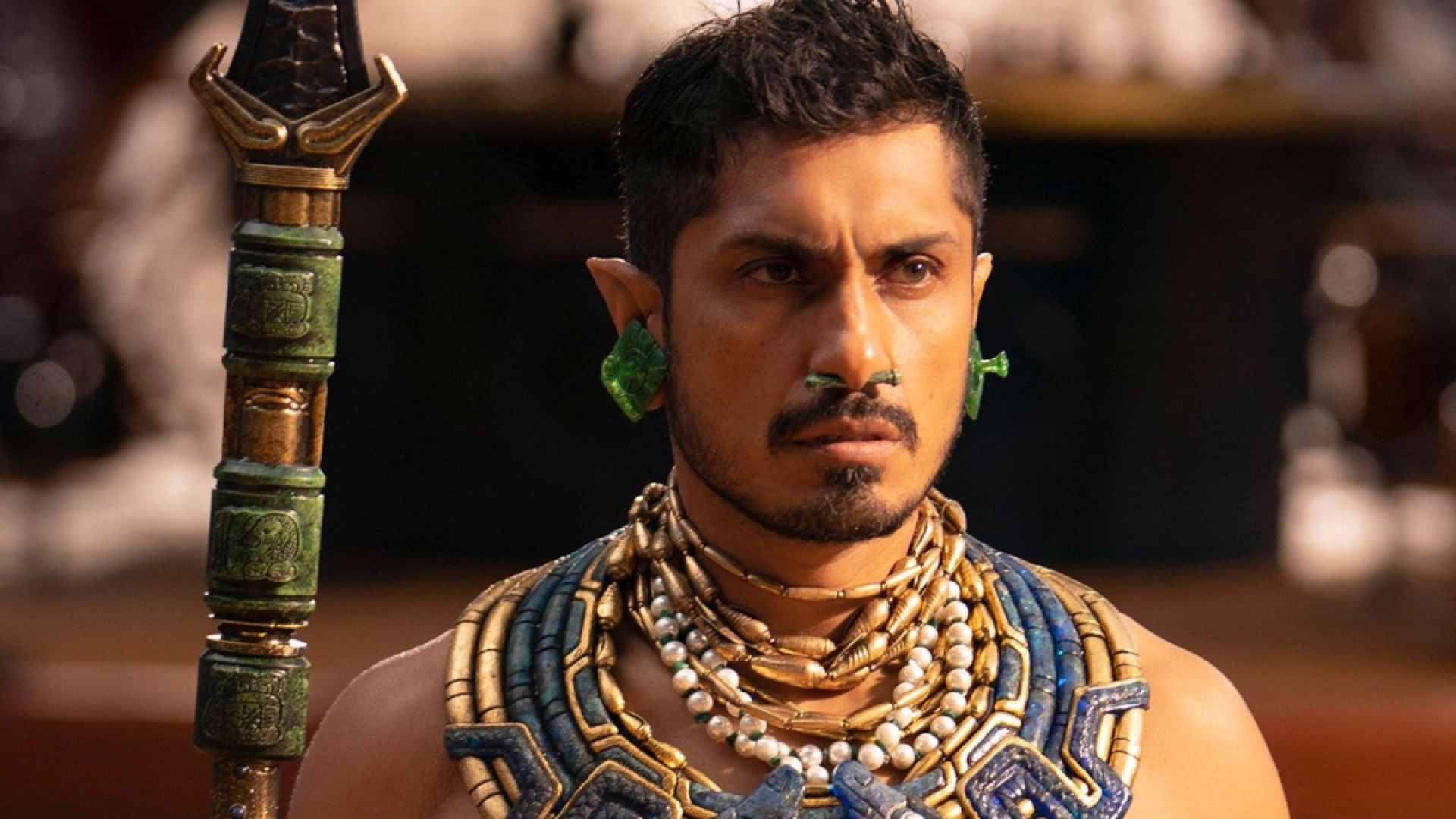
After all, both Killmonger and Namor are children driven from their homes; Namor’s name even derives from a Spanish insult that he was “a child without love.” Both Killmonger and Namor ultimately want to punish the world for the pain that they suffered. In both Black Panther and Wakanda Forever, Coogler returns to the visual and metaphorical motif of fire. As in the works of Martin McDonagh, Coogler presents fire as the embodiment of all-consuming rage; it burns quickly, consumes everything, and spreads out of control.
To be fair, the idea of the abandoned child is a recurring fascination for Coogler as a filmmaker, going back to Fruitvale Station and continuing through Creed. The trailer for Creed III, a film with a story by Coogler, suggests that Damian “Dame” Anderson (Jonathan Majors) may have a similar arc to that of Killmonger and Namor. More than that, there is undeniable value in exploring the legacy of colonialism and the way that these systems pit communities and nations against each other.
It is perhaps commendable that Wakanda has never had to visit violence upon the other nations that would seek to do violence upon it. All of the soldiers who raid the facility at the start of Wakanda Forever are returned alive and relatively unharmed. As Adam Serwer noted, Black Panther offers an appealingly utopian argument about how “the master’s tools cannot dismantle the master’s house.” As Ross points out to de Fontaine, America would never show that restraint with that power.
At the same time, all of this feels like a calculated attempt to write about colonialism without ever confronting the colonizers. At the end of Black Panther, Killmonger convinces T’Challa to end Wakanda’s isolation and to engage with the larger world. However, Wakanda Forever offers no similar progression. Wakanda may never have been colonized itself, but it is dealing with the legacies of colonialism visited on others. Wakanda Forever remains unwilling to confront the cause.

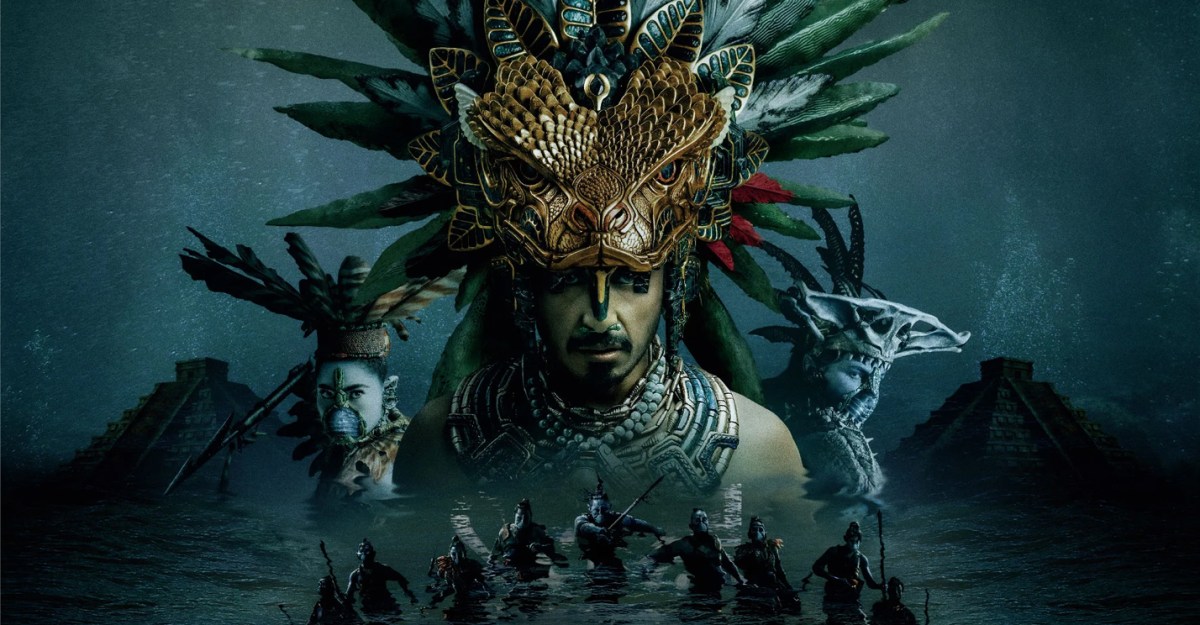




Published: Nov 13, 2022 11:00 am